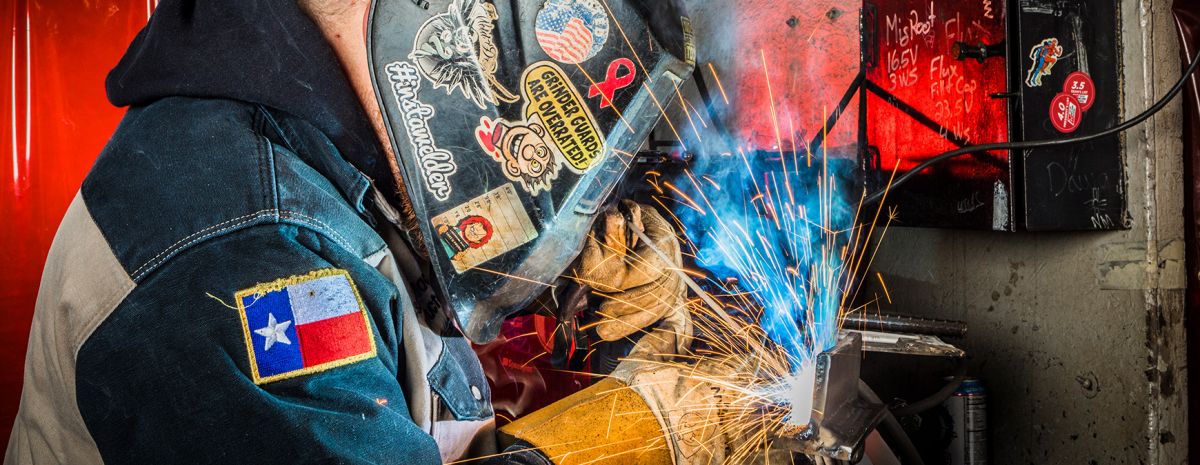
Are you looking for an introduction to welding and interested in learning welding terminology? There are a few terms you should know before taking a welding program at a trade school.
Introduction to Welding: Terminology
The basic terms you should know to prepare you for a welding career include:
Alternating Current (AC) – electrical current that reverses its direction at regular intervals.
American Welding Society (AWS) – a non-profit that advances the science, technology, and application of welding.
Arc Welding – group of welding processes that joins metals together using a heated arc.
Get Started on the Path to a New Career
Fill out our form to learn how we can help you change your life.
Base Metal – the metal or alloy that is welded. The base metal is fused together to create a joint.
Carbon-Arc Welding (CAW) – metals are joined by an electric arc between the work metal and a non-consumable carbon electrode.
Case Hardening – a heating treatment that hardens the surface of a metal while maintaining a soft core.
Current – amount of electricity flowing past a point in a conductor every second
Current Density – a measure of the degree of arc constriction achieved.
Direct Current (DC) – electricity that flows in one direction and does not reverse its direction.
Electrode – the current emitted from a plasma arc torch.
Flux Cored Arc Welding (FCAW) – an arc welding process that joins metals together by heating them with an arc between a continuous, consumable electrode wire.
Gas Metal-Arc Welding (GMAW) – an arc welding process that uses an arc between a consumable electrode and a welding pool.
Gas Tungsten-Arc Welding (GTAW) – an arc welding process that uses the arc between a non-consumable tungsten electrode and the weld pool.
Inert Gas – a gas that does not change under extreme heat, like during welding.
Joint – the location where two or more metal pieces are joined together.
MIG Welding – also known as GMAW, an arc welding process that joins metal using heating arc, between a continuously fed metal electrode and the metal piece.
Non-Destructive Testing (NDT) – process of examining components for performance using tests that don’t harm the components to be tested.
Stick Welding – also known as SMAW, an arc welding process that melts and joins metal with an arc, between a covered metal electrode and the metal work piece.
Spot Welding – welding made on materials with overlapping joint design.
Tungsten Inert Gas (TIG) Welding – welding process using an electric arc maintained between a non-consumable tungsten electrode and the metal work piece.
Why is it Important to Learn Welding Terminology?
There are many reasons to learn welding terminology.
Communication and Confidence
When speaking with other welders, it is important to speak the same language and understand the meaning of each welding term. This way you can communicate better as well as build confidence in your peers, that you have been fully trained as a welder.
You will build confidence in yourself, knowing the basic terminology of welding. Also, if you know what you are saying and can convey this to customers, they are more likely to use your services, rather than a competitor.
Prepare For a Welding Program
Before you can get licensed as a welder, you must complete at least 3 to 4 years of an apprenticeship. During this time, you may create knowledge gaps and not gain a complete education. To counter this, you can take a welding program at a trade school like RSI. When it is time to start the welding program, you will know the basic terminology. Plus, after you finish the welding program, you will have a complete understanding of welding with no knowledge gaps to start working as a welder’s apprentice.
Want To Learn More?
The path to welding certification starts by enrolling in RSI’s Welding Specialist program. We offer hands-on training with classroom lectures to prepare you for entry-level job opportunities in structural, alloy, and pipeline welding. To learn more, contact us.

